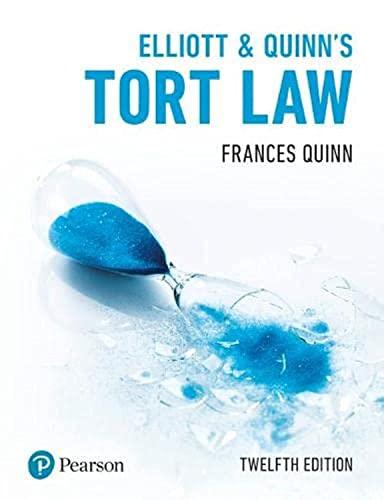Question
Is this b? A state has enacted a party affiliation statute prohibiting a person from being an independent candidate in a general election if he
Is this b?
A state has enacted a party affiliation statute prohibiting a person from being an independent candidate in a general election if he either: (1) registered with a political party during the year prior to the immediately preceding primary; or (2) voted in that primary. The state adopted the so-called "disaffiliation" statute in order to have intraparty feuds resolved in primary elections, rather than in the general election. Moreover, the elections director strongly supported the law and argued that it was necessary to avoid voter confusion and ensure that the general election winner received a majority.
A candidate who was a registered Democrat the year before, now wishes to run as an Independent candidate in the upcoming general election. However, the elections director ruled that his candidacy violates the state's "disaffiliation" statute and has barred the candidate from appearing on the ballot.
If the candidate files suit in federal district court challenging the constitutionality of the state election statute, which of the following best states the burden of persuasion?
(A) The state must demonstrate that the law is substantially related to an important state interest. (B) The state must demonstrate that the law is necessary to further a compelling state interest. (C) The candidate must demonstrate that the law is not rationally related to any legitimate state interest.
Step by Step Solution
There are 3 Steps involved in it
Step: 1

Get Instant Access to Expert-Tailored Solutions
See step-by-step solutions with expert insights and AI powered tools for academic success
Step: 2

Step: 3

Ace Your Homework with AI
Get the answers you need in no time with our AI-driven, step-by-step assistance
Get Started


